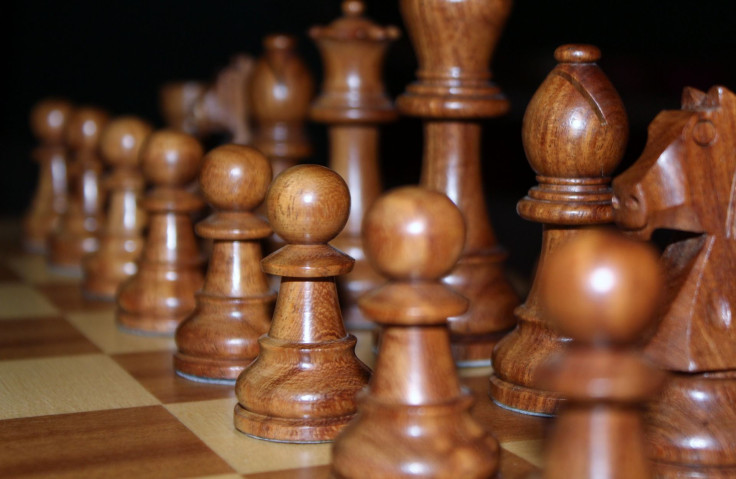Female Chess Players Defy Stereotypes To Take Down Male Players

The queen is the most powerful piece on the chessboard, and she perhaps becomes an even more dominant force when a woman is the one moving her. A new study shows that female chess players rise to the occasion when they are playing against men who are ranked higher than them, performing better and defying expectations about how negative stereotypes affect people’s behavior.
Using data from millions of games from international tournaments, a paper in the journal Psychological Science found that “female players outperform expectations when playing men” even though it has previously been suggested that they succumb to "stereotype threat," a psychological phenomenon in which people who are worried about conforming to a negative stereotype experience anxiety and perform worse.
That phenomenon is most widely known for its effect in an educational setting on a racial basis. Black students, for example, have been found to do worse on a test than white students when the test is described in such a way that the black students feel they will be conforming to negative stereotypes about their race if they do not perform.
When it comes to chess, a domain in which men far outnumber women, the idea is that a woman would experience stereotype threat when playing against a man.
“Stereotype threat has been offered as a potential explanation of differential performance between men and women in some cognitive domains,” according to the new study.
But the research did not find this effect in the more than 5.5 million chess games and 167,000 ranked players studied — only 10 percent of which were women.
On average, the men were ranked higher than the women. Normally, rankings predict who will win a match but the women won more than their predicted share when they were playing against males, as opposed to other women.
“These findings show that even famous psychological phenomena may not be present all the time,” researcher Tom Stafford said in a statement from the University of Sheffield. “Factors other than stereotype threat appear to be more important in determining men and women's tournament chess performance. … The news is good for female chess players, of whom there are exploding numbers. Although discrimination is real and pervasive, women playing tournament chess do not seem to be at a disadvantage when paired with men.”
© Copyright IBTimes 2024. All rights reserved.





















